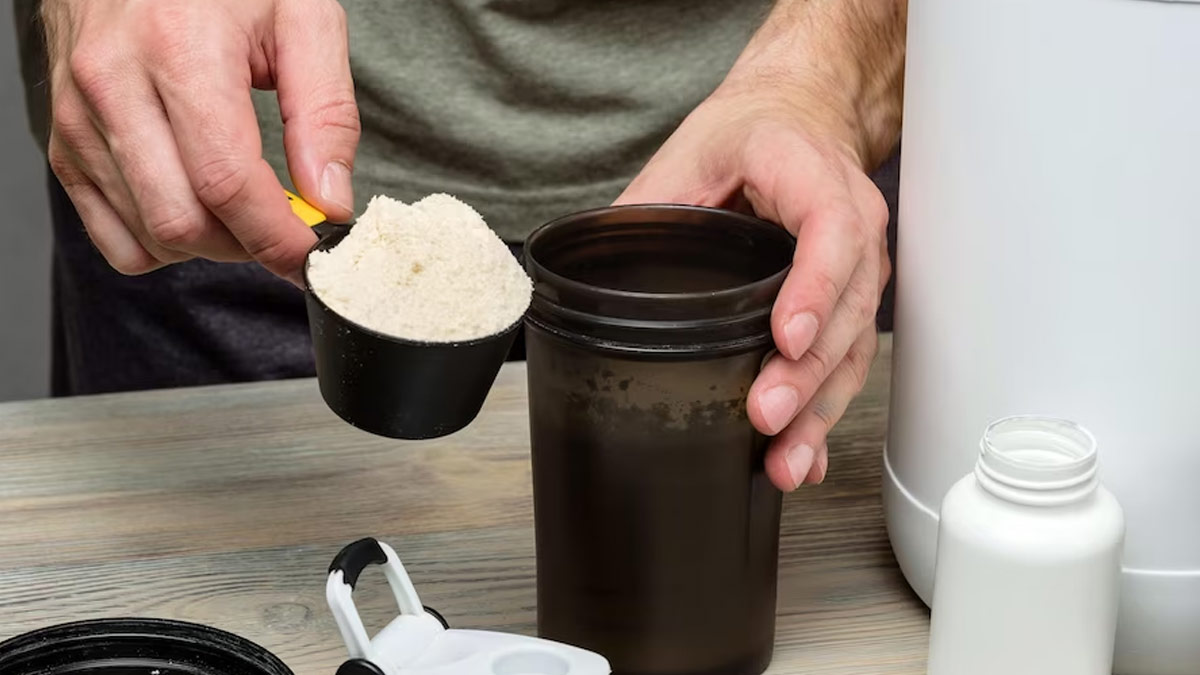
Protein powders have become increasingly popular in recent years, and for good reason. They are a convenient and efficient way to increase your protein intake, whether you are an athlete looking to build muscle, a vegan looking for an alternative protein source, or simply someone who wants to increase their protein intake. However, with so many different types of protein powders on the market, it can be difficult to know which one is right for you. In this article, we will explore everything you need to know about protein powders, including what they are, the different types of protein powders available, how to choose the best one for your needs, and how to use protein powder effectively.
Table of Content:-
Speaking with the editorial team of OnlyMyHealth, Ishaan Arora, Body Building India, Certified Trainer explains the meaning and different types of protein powders available across the country. Here is what he shared with us.
What are Protein Powders?
Protein powders are a type of dietary supplement that is typically made from one or more types of protein, such as whey, casein, soy, or pea protein. These powders can be mixed with water or milk to create a high-protein drink, or they can be added to recipes like smoothies, baked goods, or even savoury dishes like soups and stews. Protein powders are popular among athletes, bodybuilders, and fitness enthusiasts because they are a quick and easy way to increase protein intake and support muscle growth and recovery.

Also read: 10 Things To Remember Before Undergoing IVF Treatment, Expert Weighs In
Types of Protein Powders
There are several different types of protein powders available, each with its own unique benefits and drawbacks. Here are some of the most common types of protein powders:
1. Whey Protein
Whey protein is a type of protein that is derived from milk. It is the most popular type of protein powder, and for good reason – it is high in protein, low in fat and carbohydrates, and is easily absorbed by the body. Whey protein is available in three main forms: whey concentrate, whey isolate and whey hydrolysed.
Whey concentrate is the cheapest of the three and contains a slightly lower percentage of protein (around 70-80%). Whey isolate, on the other hand, is more expensive but contains a higher percentage of protein (around 90-95%). Lastly, Hydrolysed whey is used mainly by bodybuilders because of its bio-availability as it contains 100% whey. Whey protein is a good choice for anyone looking to increase their protein intake, particularly athletes and bodybuilders who want to support muscle growth and recovery.
2. Casein Protein
Casein protein is another type of protein that is derived from milk. It is digested more slowly than whey protein, which means it can help you feel full for longer and may be beneficial for weight loss. Casein protein is often marketed as a nighttime protein supplement, as it can provide a steady stream of amino acids to the body while you sleep. Casein protein is a good choice for anyone looking for a quick high-protein dinner meal and wants to improve and fasten their recovery.

Also read: 10 Things To Remember Before Undergoing IVF Treatment, Expert Weighs In
3. Soy Protein
Soy protein is a type of protein that is derived from soybeans. It is a good choice for vegans and vegetarians who are looking for a high-quality protein source, as it contains all nine essential amino acids. Soy protein is also low in fat and carbohydrates, making it a good choice for anyone who wants to increase their protein intake while minimising calorie intake. However, some people may be allergic to soy, and there is some controversy surrounding the use of soy products due to their high phytoestrogen content.
4. Pea Protein
Pea protein is a type of protein that is derived from yellow peas. It is a good choice for vegans and vegetarians who are looking for a high-quality protein source, as it is both gluten-free and lactose-free. Pea protein is also hypoallergenic, which means it is unlikely to cause an allergic reaction. Pea protein is a good choice for older people and young adults. It is also a cheaper protein than whey.
Before using protein powders, it is important to note that they are a dietary supplement and should not be used as a replacement for a balanced diet. While protein powders can be a convenient and efficient way to increase your protein intake, it is important to remember that whole foods are always the best source of nutrients.
Additionally, it is important to choose a protein powder that is appropriate for your individual needs and goals, and to consult with a healthcare professional if you have any underlying medical conditions or concerns. Finally, be sure to follow the recommended serving sizes and instructions on the label, and to always store protein powders in a cool, dry place away from sunlight and moisture, suggests expert Ishaan Arora.
Also watch this video
How we keep this article up to date:
We work with experts and keep a close eye on the latest in health and wellness. Whenever there is a new research or helpful information, we update our articles with accurate and useful advice.
Current Version